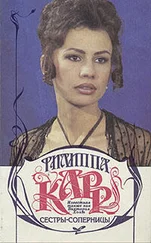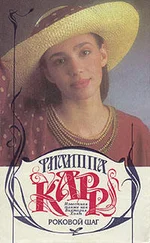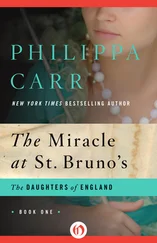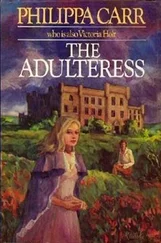"But this one was born holy, Keziah," I whispered.
"You are wicked," cried the boy; and at that moment one of the monks came walking across the grass.
"Bruno," called the monk; and then he saw us on the wall.
Keziah smiled at him rather strangely, I thought, because after all he was a monk, and I knew by his robes that he was not one of the lay brothers who left the Abbey and mingled with the world.
"What are you doing here?" he cried; and I thought Keziah would jump down, lift me down and run, for he was clearly very shocked to see us.
"I'm looking at the Child," said Keziah. "He's a bonny sight.”
The monk appeared to be distressed by our wickedness.
"It's only me and my little 'un," said Keziah in that comfortable easy way which made everything less serious than others were trying to make it out to be. "He was going to throw a stone at us.”
"That was wrong, Bruno," said the monk.
The boy lifted his head and said: "They shouldn't be here, Brother Ambrose.”
"But you must not throw stones. You know that Brother Valerian teaches you to love everybody.”
"Not sinners," said the Child.
I felt very wicked then. I was a sinner. He had said so and he was the Holy Child.
I thought of Jesus who had been in His crib on Christmas Day and how different He must have been. He was humble, my mother told me, and tried to help sinners. I could not believe that He would ever have wanted to throw stones at them.
"You're looking well, Brother Ambrose," said Keziah. She might have been talking to torn Skillen, one of our gardeners to whom she did talk very often. There was a little trill at the end of her sentence which was not quite a laugh but served the same purpose since it betrayed her refusal to admit anything was very serious in any situation.
The Child was watching us intently, but strangely enough I found my attention becoming fixed on Keziah and the monk. The Child might become a prophet, I had heard, but at this time he was simply a child, though an unusual one, and I accepted the fact that he had been found in the Christmas crib as I accepted the stories of witches and fairies which Keziah told me; but grown-up people interested me because they often seemed to be hiding something from me and to discover what was a kind of challenge which I could not resist meeting.
We saw the lay brothers now and then in the lanes, but not the monks who lived the enclosed life; and I had heard that in the last years when the fame of St. Bruno's had spread the number of lay brothers had increased. Sometimes they went into the city because there were the products of the Abbey to be disposed of and business to discuss; but they always went into the world outside the Abbey in twos. Wealthy parents sent their sons to the Abbey to be educated by the monks; men seeking work often found it in the Abbey farm, mill or bake and brew houses. There was a great deal of activity, for not only was there the monastic community but mendicants, and poor travelers would always be given a meal and a night's shelter for it was a rule that none who lacked these should be turned away.
But although I had seen the brothers in pairs walking along the lanes, usually silent, their eyes averted from worldly sights, I had never before seen a monk and a woman together. I did not know then what kind of woman Keziah was, but in spite of my youth I was very curious on this occasion and surprised by the challenging and the jocular disrespect which Keziah seemed to show toward Brother Ambrose. I could not understand why he did not reprove her.
All he did say was: "You should not look on what you are not meant to see.”
Then he took the Child firmly by the hand and led him away. I hoped the boy would look around but he did not.
When they had gone Keziah jumped down and lifted me off the wall.
I chattered excitedly about our adventure.
"His name's Bruno.”
"Yes, after the Abbey.”
"How did they know that was his name?”
"They gave it to him, and right and proper it is.”
"Is he Saint Bruno?”
"Not yet-that's to come.”
"I don't think he liked us.”
Keziah did not answer. She seemed to be thinking of something else.
As we were about to enter the house she said: "That was our adventure, wasn't it?
Our secret, eh, Dammy? We won't tell anyone, will we?”
"Why not?”
"Oh, better not. Promise.”
I promised.
Sometimes John and James, two of the lay brothers, came to see my father, who told me that once, long ago, he had lived at St. Bruno's Abbey.
"I thought I would be a monk and I lived there for two years. After that I came out into the world.”
"You would have made a better monk than Brothers John and James.”
"You should not say that, my love.”
"But you have said I must say what is true. Brother John is old and he wheezes, which Keziah says means his chest is bad. He needs some herbs from Mother Salter. And Brother James always looks so cross. Why did you not stay a monk?”
"Because the world called me. I wanted a home and a wife and a little girl.”
"Like me!" I cried triumphantly. It seemed a good enough reason for leaving the Abbey.
"Monks can't have little girls," I went on. "But they have the Child.”
"Ah, but his coming was a miracle.”
Later I thought how sad it was for my father for I came to believe he craved for the monastic life of solitude, study and contemplation. He had wanted a large family-stalwart sons and beautiful daughters. And all those years he had longed for a child and had been denied his wish-until I came.
I always liked to be near when Brothers John and James called at our house. In their fusty robes they repelled while they fascinated me. Sometimes the sight of James's sad face and John's pale one made a lump come into my throat, and when I heard them call my father Brother, I was strangely moved.
One day I had been playing with the dogs in the garden and was tired suddenly so I climbed onto my father's knee and in the quick way that children do I fell asleep.
When I awoke Brothers John and James were in the garden sitting on the bench beside my father talking to him, so I just lay still with my eyes closed, listening. They were talking about the Abbey.
"Sometimes I wonder, William," said Brother John to my father. "The Abbey has changed very much since the miracle. It is comforting to talk and we can talk to you, can we not, James, as to no other outside the Abbey walls?”
"That is true," said James.
"It was a sad day," went on Brother John, "when you made up your mind to leave us.
But mayhap you were wise. You have this life... Has it brought you the peace you wanted? You have a good wife. You have your child.”
"I am content if everything can remain as it is at this time.”
"Nothing remains static, William.”
"And times are changing," said my father sadly. "I like not the manner of their change.”
"The King is fierce in his desires. He will have his pleasure no matter at what price.
And the Queen must suffer for the sake of her who comes from Hever to disrupt our peace.”
"And what of her, John? How long will she keep her hold on his heart and his senses?”
They were all silent for a while.
Then Brother John said, "One would have thought we should have become spiritual with the coming of the Child. It is quite different. I remember a day... a June day some six months before he came. The heat was great and I came out into the gardens hoping to catch a cool breeze from the river. I was uneasy, William. We were very poor. The year before our harvest had been ruined. We were forced to buy our corn. There had been sickness among us; we were not paying our way. It seemed that St. Bruno's for the first time in two hundred years would fall into decline. We would stay here and starve. And in the gardens that day I said to myself, 'Only a miracle can save us.' I am not sure whether I prayed for a miracle.
Читать дальше







